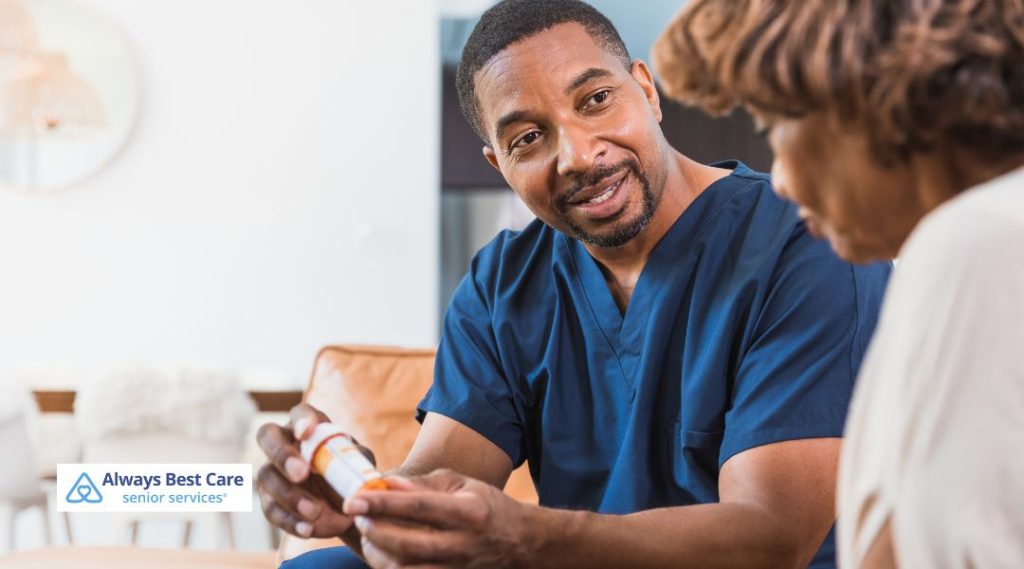The Road to Recovery: Helping Seniors Transition from Hospital to Home in Brentwood

The journey from hospital to home is a critical time for seniors, requiring careful planning and dedicated support. A successful transition can mean the difference between a full recovery and potential setbacks. In Brentwood, families can rely on a range of resources, like our transitional care services, to help their aging loved ones regain strength and independence in the comfort of their own homes.
From creating a safe living space to ensuring proper nutrition, medication management, and emotional well-being, every aspect of care plays a role in a smooth recovery. With the right guidance and support, seniors can heal with confidence and enjoy a better quality of life after hospitalization.
Making the Home a Safe and Comfortable Space
Creating a safe and comfortable environment at home is essential for a smooth recovery after hospitalization. Adjusting mobility and accessibility can make daily activities easier and help prevent unnecessary strain.
Simple modifications, such as installing handrails in hallways, placing grab bars in the bathroom, and ensuring that frequently used items are within easy reach, can greatly enhance seniors’ ability to move independently. If mobility is significantly limited, arranging for a hospital bed, a wheelchair, or a walker can provide additional support.
Another crucial step in home preparation is reducing fall risks and other household hazards. Cluttered walkways, loose rugs, and poor lighting can increase the risk of accidents, so it’s important to remove obstacles and ensure that every area of the home is well-lit. Non-slip mats in the bathroom, sturdy furniture for support, and easy-to-access seating areas can help prevent falls and create a safer living space.
Ensuring medical equipment is set up and ready before your loved one returns home can make all the difference in their comfort and recovery. Oxygen tanks, blood pressure monitors, or specialized beds should be arranged in advance, along with any necessary instructions on how to use them properly. Coordinating with healthcare providers to confirm that everything is in place can eliminate last-minute stress and provide reassurance that your loved one’s needs are met.
Additional support may be necessary for seniors who require specialized care. Those with conditions such as dementia, Parkinson’s, or post-surgical limitations may need extra assistance with daily tasks and medical management. Our professional caregivers can provide hands-on support, ensuring that specialized care needs are addressed while offering companionship and emotional encouragement.

Managing Medications and Treatment Plans
Proper medication management is essential for a successful recovery. Organizing medications for easy and safe use helps prevent confusion and reduces the risk of missed or incorrect doses. Using a pill organizer with clearly labeled compartments for daily doses can make it easier to follow a schedule.
For more complex medication routines, keeping an up-to-date medication list, including dosages and timing, can help caregivers and family members stay informed. If multiple prescriptions are involved, consulting with a pharmacist to check for possible drug interactions ensures that medications are taken safely.
Another key aspect of managing treatment plans is setting reminders to prevent missed doses. Alarms, phone notifications, or smart pill dispensers can help seniors remember when to take their medications.
For those who require additional support, a caregiver can provide reminders and assistance and ensure that prescriptions are taken on time and as directed. By staying proactive with medication and treatment management, families can help their loved ones recover smoothly while avoiding potential complications.
Supporting Physical and Mental Well-Being
Maintaining physical and mental well-being is essential for a smooth recovery after hospitalization. Encouraging safe movement and gentle exercises can help seniors regain strength and mobility while reducing the risk of complications like muscle stiffness or bedsores.
Simple movements such as stretching, walking with assistance, or doctor-approved physical therapy exercises can improve circulation and enhance overall well-being. Ensuring that seniors have the right support, such as grab bars, walking aids, and a safe space for movement, makes exercise more accessible and less intimidating.
Addressing post-hospital anxiety and stress is equally important in the healing process. Many seniors feel overwhelmed after returning home, worrying about their health, independence, or the challenges of recovery. Providing reassurance, maintaining a calm routine, and engaging in relaxing activities can help ease anxiety.
If stress or feelings of depression persist, seeking support from a professional counselor or therapist may be beneficial. Encouraging open communication about concerns and emotions can also foster a sense of security and control during this transitional period.
Companionship is crucial for helping seniors maintain a positive outlook and emotional recovery. Loneliness can be a major concern after hospitalization, especially for those who live alone or have limited social interactions. Regular visits or keeping in touch online with family, friends, or caregivers can provide much-needed connection and support.
Engaging in hobbies, watching favorite shows together, or simply having meaningful conversations can uplift a senior’s mood. A dedicated caregiver can offer companionship while also assisting with daily needs, ensuring that your loved one feels cared for and valued.

Table of Contents
Meal Planning and Nutrition for a Strong Recovery
Proper nutrition is a key factor in helping the body heal. Hydration and the role of proper nutrition in healing cannot be overlooked, as seniors recovering from illness or surgery often have specific dietary needs.
Drinking enough water prevents dehydration and supports vital functions, while nutrient-rich meals aid in tissue repair, immune strength, and energy levels. Incorporating protein, fiber, vitamins, and minerals into daily meals can speed up recovery and improve overall health. If dietary restrictions are in place, following a doctor’s or dietitian’s guidance ensures that meals are both nourishing and safe.
Meal assistance is often necessary when extra help is needed, especially for seniors who have difficulty cooking or managing mealtime on their own. Preparing meals in advance, arranging for meal delivery services, or having a caregiver assist with cooking and feeding can help ensure that proper nutrition is maintained.
Beyond providing sustenance, shared mealtimes with family or caregivers can also be a comforting social experience, promoting physical health and emotional well-being. Having the right support in place makes it easier for seniors to stay nourished and confidently focus on their recovery.
Staying on Top of Medical Appointments and Follow-Ups
Regular medical follow-ups are essential to ensure a smooth recovery and address any concerns arising after hospitalization. Scheduling and tracking doctor visits helps seniors stay on course with their treatment plan, preventing setbacks or complications. Keeping a calendar, using a mobile reminder app, or working with a caregiver to arrange transportation can make attending appointments easier. Preparing all necessary paperwork, test results, and medication lists in advance can also help streamline the visit and provide doctors with the most accurate information.
Asking the right questions during check-ups is key to understanding a loved one’s progress and ensuring they receive the best possible care. Inquiring about any changes in medication, potential side effects, or necessary lifestyle adjustments can provide clarity and peace of mind. It’s also important to ask about warning signs that might indicate complications and when to seek medical attention.
Discussing physical therapy, dietary needs, and any additional resources available for at-home care can further support recovery. Having a trusted family member or caregiver present at appointments can be beneficial, as they can take notes, help communicate concerns, and ensure that all medical recommendations are followed correctly. Staying proactive with medical care plays a significant role in maintaining long-term health and well-being.

Set the Stage for a Smooth Transition with Always Best Care!
Bringing a loved one home after a hospital stay can feel overwhelming, but you don’t have to navigate it alone. Always Best Care is here to provide expert in-home support, whether you need short-term assistance or 24/7 care.
Contact Always Best Care of Greater Nashville at (615) 678-0293 to schedule a care consultation and explore how we can assist with your loved one’s recovery at home. Let’s ensure they have the right support for a healthy and successful transition.





